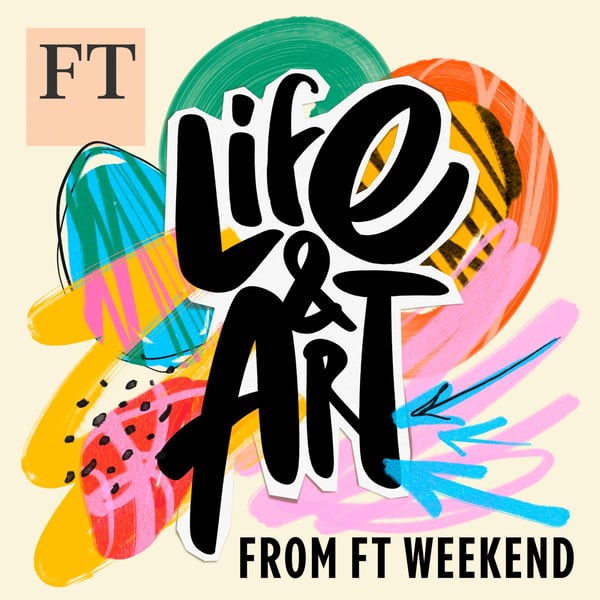Artist Shirin Neshat on the women-led protests in Iran
Life and Art from FT Weekend
Forhecz Topher
4.6 • 601 Ratings
🗓️ 15 October 2022
⏱️ 29 minutes
🧾️ Download transcript
Summary
This week we speak with Shirin Neshat, one of the most famous contemporary artists from Iran, about the protests in her home country. Shirin’s work focuses on the lives and struggles of Iranian women. The protests have been raging for a month, which, as Shirin says, makes them the longest-running demonstrations since the 1979 Islamic revolution. We talk about what they mean, why this time they’re different, and her art, some of which has been recently projected on buildings in London and Los Angeles. Then, we hear about a new trend in drug research. Scientists can now grow entire human mini-organs in labs. Could that lead to a world without animal testing? The FT’s Clive Cookson and Hannah Kuchler join us to discuss.
-------
Want to stay in touch? We love hearing from you. Email us at [email protected]. We’re on Twitter @ftweekendpod, and Lilah is on Instagram and Twitter @lilahrap.
-------
Links and mentions from the episode:
– Shirin Neshat is on Instagram at @shirin__neshat
– Shirin’s video installation Turbulent, 1998: https://www.youtube.com/watch?v=VCAssCuOGls
– Some photos of Shirin’s Women of Allah series: https://www.matronsandmistresses.com/articles/2021/4/29/shirin-neshat
– Baraye, by Shervin Hajipour https://www.youtube.com/watch?v=TPyHuCZzsVA
– An interview with Shirin in the FT from September 2021: https://on.ft.com/3zVaVk8
– How science is getting closer to a world without animal testing, by Clive, Hannah and Joe Miller: https://on.ft.com/3SPlFuA
– Hannah is on Twitter @hannahkuchler, and Clive is on Twitter @clivecookson
-------
Special offers for FT Weekend listeners, from 50% off a digital subscription to a $1/£1/€1 trial can be found here: http://ft.com/weekendpodcast
-------
Original music by Metaphor Music. Mixing and sound design by Breen Turner and Sam Giovinco
Read a transcript of this episode on FT.com
Hosted on Acast. See acast.com/privacy for more information.
Transcript
Click on a timestamp to play from that location
| 0:00.0 | Since protests began in Iran four weeks ago, the artist Shirin Nishat has been glued to her phone. |
| 0:07.5 | I think for most of us living outside of Iran, we pretty much expected that we will go very likely the rest of our lives in the state that we are. |
| 0:18.2 | Maybe things will go up and down a little in Iran, but we'll never go back. |
| 0:23.8 | And then came this day and this news, and we thought, oh, well, this is just another short uprising |
| 0:30.8 | will last a few days or a week. |
| 0:33.3 | And now it's like we're entering the fourth week, the longest uprising we've had since the |
| 0:39.3 | Iranian Revolution in 1979. |
| 0:42.1 | And the people of Iran are furious. |
| 0:45.8 | Shirin lives in the U.S., she has since the 1970s. |
| 0:49.2 | But over the last 30 years, she's become one of the most esteemed, well-known artists making work about Iranian |
| 0:56.0 | women in the world. And women are leading the current protests, mostly really young women. |
| 1:03.4 | The protests began after the death of 22-year-old Masa Amini. Masa had been detained by Iran's |
| 1:10.1 | morality police for allegedly not properly |
| 1:12.7 | observing the hijab, and she died in their custody. But her death sparked action that's grown |
| 1:18.2 | far beyond a call for justice for Masa's family and beyond fighting for the laws around women's dress. |
| 1:24.8 | It sort of unleashed a kind of rage that was brewing in people's hearts and lives. |
| 1:31.7 | And it was almost as if they were having to wait for a martyr or someone who symbolized their |
| 1:38.3 | struggles. |
| 1:39.7 | Today, Shirin gives us context for the protests in Iran. |
| 1:43.3 | We also talk about her expansive body of work. |
| 1:46.3 | Sharin is a multimedia artist. She came to fame with a series in the 90s called Women of Allah. |
| 1:52.1 | This month, in support of the protests, Sharin has allowed some of these images to be projected on buildings across central London and Los Angeles. |
... |
Please login to see the full transcript.
Disclaimer: The podcast and artwork embedded on this page are from Forhecz Topher, and are the property of its owner and not affiliated with or endorsed by Tapesearch.
Generated transcripts are the property of Forhecz Topher and are distributed freely under the Fair Use doctrine. Transcripts generated by Tapesearch are not guaranteed to be accurate.
Copyright © Tapesearch 2025.

